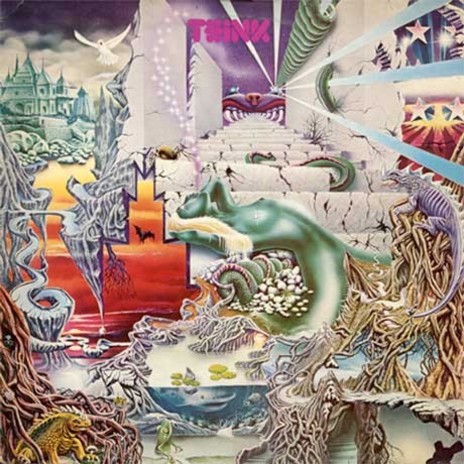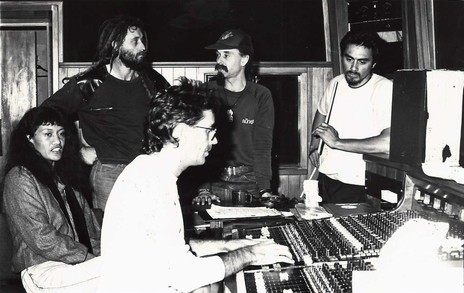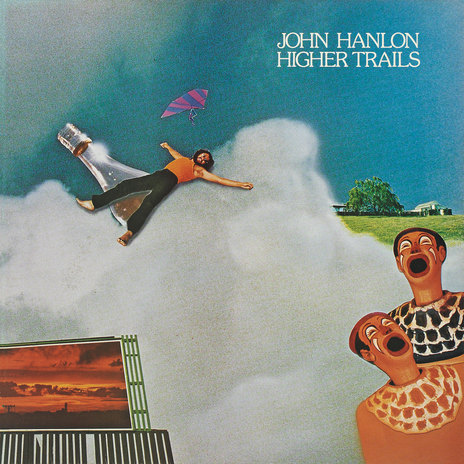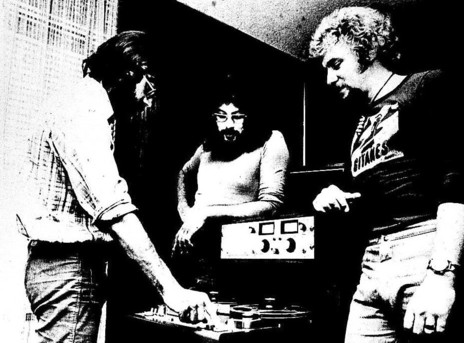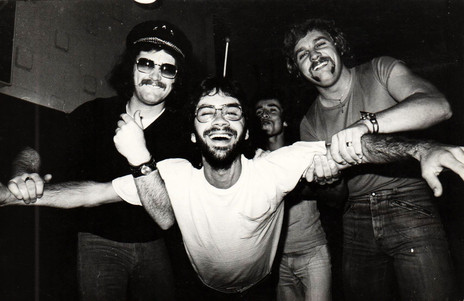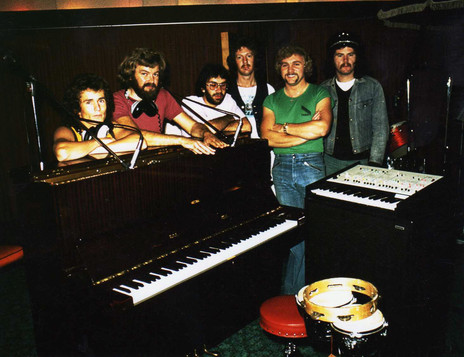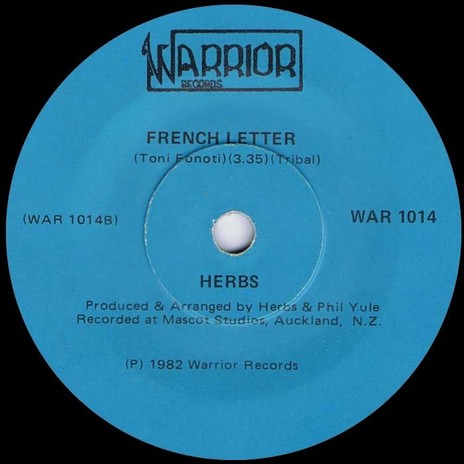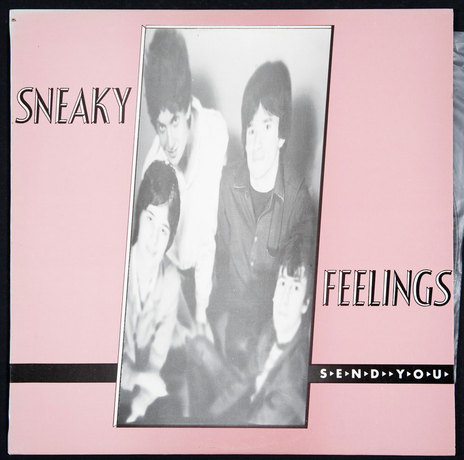The son of a Presbyterian minister, Phil Yule was born in Wyndham, Southland on 10 May 1951. In 1960 he shifted to Auckland when his father took up the reins at St Stephen’s Church on the corner of Jervois and Shelley Beach Roads. Ponsonby has been Phil Yule’s stomping ground for most of his life.
Leaving school in 1968, he learned his skills during five years at Auckland’s Broadcasting House and there are few major radio names that he hasn’t been associated with – he has worked with Merv Smith, Kevin Black, Barry Jenkin, Paul Holmes, Peter Sinclair, Marcus Lush.
“There wasn’t much music until I joined Stebbings in 1973,” he says, “although I did work on Peter Sinclair’s show, The Pop-O-Meter Top Twenty. I was given a well-rounded education at Broadcasting House, which even included a year of drama, which I enjoyed.”
Phil Yule started at Stebbing shortly after the company had shifted its studio operations to Jervois Road.
Phil Yule started at Stebbing shortly after the company had shifted its studio operations to Jervois Road. “It still had 8-track facilities,” Yule remembers, “but they upgraded to 16-track during my first year there.”
An early assignment was engineering John Hanlon’s Higher Trails. “It was produced by Mike Harvey, who is a great arranger; I learned heaps from him.” The album garnered Yule the Engineer of The Year Award at the 1975 New Zealand Music awards.
“I was very fortunate, working for Stebbings when I did. I think they beat EMI to get the first 16-track studio in New Zealand and they were recording a lot more singles and albums than other New Zealand studios. It wasn’t all jingles and television commercials, although I did an awful lot of those as well. I did lots of Murray Grindlay jingles. Oh and I worked on his [self-titled] album too, although Eldred [Stebbing] got Rob Aickin to remix it. I also engineered Salty Dogg, Mike Harvey’s band, and the seminal Waves album, which is now a collectors’ item.
“One session I remember is Shona Laing’s ‘I Love My Feet’, which was recorded on her last day in New Zealand before she moved to London. That was produced by Julian Lee, who’d just returned from Australia. Julian Lee also produced the Think album [We’ll Give You A Buzz], I’m not sure how that came about.”
Another highlight at Stebbing studios was Headband’s Rock Garden album. “It was just fantastic to be able to work alongside the likes of Tommy Adderley and Dick Hopp. Neil Edwards was on bass, Jimmy Hill on drums, very fond memories.”
Other records he engineered there included The Quincy Conserve’s final album and Human Instinct’s Peg Leg, which remained unreleased for 30 years. “The band split up before the album came out so Eldred [Stebbing] canned it.”
Asked whether the clean-living Christian, son of a preacher man, was put out by the company he was keeping, Yule laughs and says, “I got along with most of the musicians and the worst thing I saw was the boys going out for a smoke. Murray would usually bring his beers along, which was okay. Later, at Mascot, I spent a lot of time with Herbs. I inhaled but I didn’t smoke!”
At the end of 1976 Phil Yule, recently married, travelled to Britain; it would be five years before he returned to New Zealand. “We didn’t have return tickets and couldn’t afford to come home,” he says. “In London I mostly worked driving vans and washing dishes, attending the University of Life, although I picked up a bit of work at the RG Jones Recording Studios. I wanted to do music but I was a beginner, not Alan Parsons.”
In 1978 Yule was recruited to engineer the Head Boys’ debut album at Castle Sound Studio in Scotland, owned by the Head Boys’ Calum Malcolm. “They were managed by Robert Stigwood, who threw half a million pounds at them and bought this studio near Edinburgh in an old Victorian school.”
At Castle Sound Yule also engineered Runrig’s The Highland Connection, which New Musical Express named Best Folk Album of 1979. “They were a good band, a good fun band, and for many years they were regarded as the second top Scottish act after Simple Minds, before you got into Andy Stewart and Jimmy Shand and bagpipe music.”
In 1981 Yule returned to New Zealand, a country in turmoil over the Springbok rugby tour. He freelanced around the Auckland studios and John Hawkesby’s Christian Broadcasting Association. On-call duties at Mascot Studios resulted in full-time employment.
“I worked at Mascot four days a week, leaving me time to do other stuff. Hugh Lynn had only recently bought the studio, Doug Jane had renovated it and seemed to be a constant presence, patching things up all the time. Gerard Carr worked there. Bob Jackson was manager when I arrived but he was replaced by Billy Kristian.”
Working with Penknife Glides is an early memory of Yule’s four years at Mascot, but mostly it was Herbs.
Working with Penknife Glides is an early memory of Yule’s four years at Mascot, but mostly it was Herbs. “There was very little advertising work or television production. Instead, there was Herbs [then managed by Hugh Lynn], a lovely bunch of guys. I am very proud of the work we did on the Long Ago album.”
There were other career highlights at Mascot, notably the recording of ‘Poi E’ and working with several Flying Nun bands. “It was the stage two Flying Nun bands, out of the bedroom and leaving the 4-track behind to brave it in the 16-track world. I liked a lot of the Flying Nun bands, those that were slightly less left field; some of them were a bit vocally challenged. I even worked with Chris Knox!
“Tall Dwarfs re-recorded ‘Nothing’s Going To Happen’ at Mascot, the wall-of-sound version. I found it funny that Chris Knox was one person on stage but in private he was actually a gentle person, a lovely, lovely guy.”
Yule has a great deal of respect for Graeme Downes of The Verlaines. “Working with Graeme was really incredible, he knew what he wanted out of the studio. In fact, that album (Hallelujah All The Way Home) got him his PhD; I feel like I’ve got a degree as well.”
One artist who proved a little frustrating was Martin Phillipps of The Chills, who recorded ‘Doledrums’ and The Lost EP at Mascot. “Martin’s problem was that he didn’t trust anybody in the studio, which made him hard to work with. A great talent, though.”
Another Flying Nun act that Yule engineered at Mascot was Sneaky Feelings (the Send You album, recorded in just three days). “Another great album,” Yule says. “That was like working with these guys who had stolen their big brother’s record collection, plundering bands like The Byrds.”
Yule left Mascot as an employee in 1986, although he remained on call, as he did with other Auckland studios. Radio was to be his main source of income in the coming years, and he collected awards by the armful.
In 1999 he started his own boutique studio in Ponsonby, The Voice Box. Phil Yule still works in radio and in the larger Auckland studios when requested. Artists he has worked with more recently include Derek Lind, Guy Wishart and his sister, Natalie Yule-Yeoman. Phil’s son Miller is also a recording artist and a technician at the studio.
“I can look back on my career and consider myself very fortunate. I’ve worked with some of the biggest names in broadcasting, from Paul Holmes and Blacky to Marcus Lush and Dr Rock. And in the recording studio I’ve worked with Fred Dagg and Billy T James, Human Instinct and Chris Knox, Prince Tui Teka, Herbs and Dalvanius. I’ve worked with lots of stars but I learned very early that most are just normal people and my job was to try to help them.”
